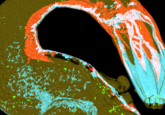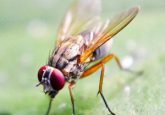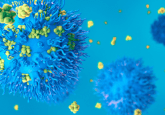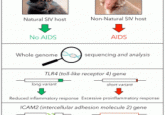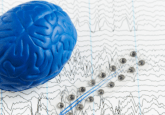Diet changes long-term immunity

Fast food is not only bad for your health, but a new study suggests that it may actually reprogram your immune response.

The effects of diet are not always immediate, but they can leave a lasting impact on health and disease development. Diet and poor lifestyle choices can increase susceptibility to chronic inflammatory disease. Now in a recent study in Cell, scientists report that diet alters the long-term innate immune response in mice.
“There were preliminary studies published by other groups showing that innate immune cells can develop a kind of trained memory, but this was more shown in the context of microbes and pathogens,” explained co-first author Anette Christ from The University of Bonn. “At the time we had the idea, we knew these Western-type diets induce a state of low-chronic inflammation systemically. It might as well be like recognizing a type of infection. This brought us to this study.”
Trained immunity is the body’s ability to remember and appropriately respond to the second infection of a pathogen. Christ and her colleagues wanted to understand how diet influences this type of immunity and disease, specifically in the case of cardiovascular disease. The scientists fed a mouse model of atherosclerosis and wild type mice either control chow (CD) or a high fat, high cholesterol “Western” diet (WD) for 4 weeks to induce minimal levels of disease lesions. Then they returned all of the WD mice to chow (WD+CD).
When they tested blood from the mice, the levels of circulating cholesterol, growth factors, cytokines, chemokines, and acute phase proteins all peaked after the WD but returned to base levels once the mice consumed the control chow again. However, a subset of myeloid cells isolated from the bone marrow of these mice, when provoked with immune response stimuli, still secreted higher levels of cytokines and chemokines compared to mice fed mice chow alone. Despite being back on normal chow, the initial WD left mice with a more reactive immune response.
After the mice ate the WD, the scientists also noticed an increase in two subtypes of white blood cells, or monocytes, in the blood that corresponded to an increase in hematopoietic stem cell progenitors in bone marrow. This indicated an increase in the potential for this lineage. RNA-sequencing and analysis of genes upregulated in the blood cell progenitors of WD-fed mouse cells further highlighted altered hematopoiesis, immune cell differentiation, and leukocyte activation. When the team injected mice intravenously with LPS, they recorded similar results. Returning to the CD did not bring monocyte levels back to control levels.
The team detected an increase in genes related to immune processes and lymphocyte activation. Assessment of epigenetic reprogramming showed that the WD actually altered chromatin globally.
“Overall, we were surprised we saw these strong epigenetic changes! We didn’t expect these strong effects overall,” said Christ.
Finally, the researchers shifted their focus to monocytes isolated from 122 healthy people. Oxidized LDL (oxLDL) is commonly used to induce trained immunity in these cells, so the researchers treated the cells with oxLDL and then re-stimulated them with LPS. In doing so, they detected several interesting SNPs in the coding regions of genes involved in inflammasome signaling, including one in the regulatory region of IL-1 receptor antagonist (IL-1ra). The inflammasome is a multiprotein complex important for initiating the immune response. Additional mouse experiments suggested that the inflammasome may trigger the observed reprogramming.
“I think the next step is to be able to show these pathways occur in humans,” explained Lisa Wood from the University of Newcastle, who was not involved in this research. “These animal studies are good at highlighting pathways that are important, but now it needs to be translated into human work.”
Christ agrees, explaining that their team is already working on several clinical studies.
“I hope while reading this article, people take it a bit more seriously how they are eating,” concluded Christ.
